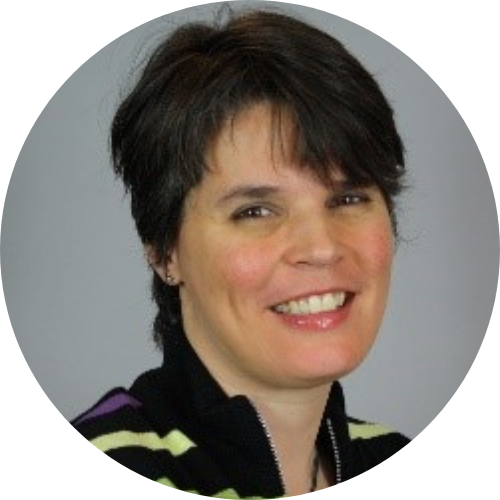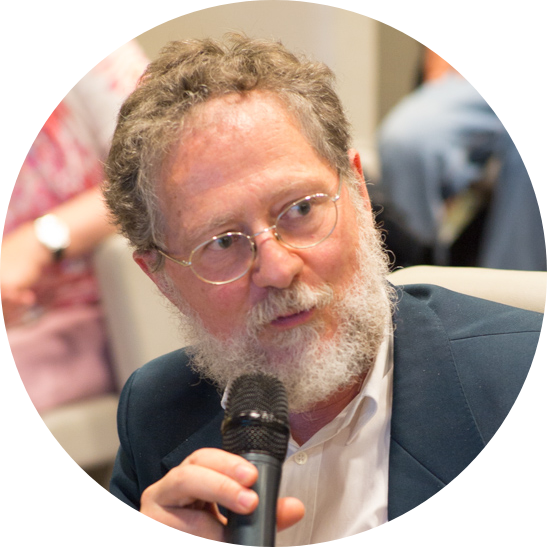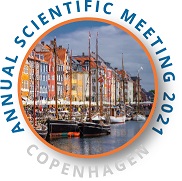Keynote Speakers

Sara Tomczyk
Dr. Sara Tomczyk is with the Robert Koch Institute’s Unit on Healthcare-associated Infections, Surveillance of Antibiotic Resistance and Consumption in Berlin, Germany. She leads the unit’s international team including their work as the coordinator of the WHO AMR Surveillance and Quality Assessment Collaborating Centres Network. Prior to this, she has worked on a range of other IPC/AMR-related research and outbreak response teams internationally including several years with the WHO IPC Global Hub. She completed the CDC Epidemic Intelligence Service and Preventive Medicine Residency and has a Masters in Epidemiology from the London School of Hygiene and Tropical Medicine.

Berit Müller-Pebody
Dr. Berit Müller-Pebody is an Infectious Disease Epidemiologist and Chief Consultant at the AMR Reference Laboratory at the Statens Serum Institut, Copenhagen, Denmark. Berit has a special interest in the surveillance and research of antimicrobial resistance and prescribing, One Health initiatives and data visualisation & linkage methods. She is member of the Danish Integrated Antimicrobial Resistance Monitoring and Research Programme’s (DANMAP) Steering Committee.

Birgitte Borck Høg
Dr. Birgitte Borck Høg works as Senior Academic Officer at the Division for Global Surveillance, National Food Institute, Technical University of Denmark. Birgitte has a special interest in One Health initiatives and integrated approaches to surveillance. In her work, she has focus on data quality and assurance, multi-sectorial collaboration, as well as communication of results to different audiences. She has worked with different aspects of monitoring and surveillance of zoonoses, including the national control programmes for Salmonella and Campylobacter. Since 2011, she has worked with the Danish integrated Antimicrobial Resistance Monitoring and Research Programme, DANMAP, where she is part of the editorial team and co-author of the DANMAP report, and member of the DANMAP Steering Committee.

Maiken Cavling Arendrup
Prof. Arendrup is Professor at the University Hospital Rigshospitalet in Copenhagen and the Head of the Mycology Unit at Statens Serum Institut, Copenhagen, where she is responsible for the fungal laboratory, which receives 13,000 routine and reference samples per year for culture, susceptibility testing, antigen- and antibody-detection, and PCR, as well as for the national surveillance programmes of candidaemia and of azole resistance in Aspergillus. Prof. Arendrup was the founder of the Nordic Society of Medical Mycology (NSMM). She is chair of the EUCAST Antifungal Susceptibility Testing Subcommittee Steering Committee, and head of the EUCAST Development Laboratory for fungi. Prof. Arendrup has authored approx. 250 publications in international journals and as book chapters. Her main research interests include the epidemiology, susceptibility, breakpoint development, diagnostics and treatment of fungal infections.

Rasmus Krøger Hare
Rasmus Hare completed his Master’s in Biotechnology at the Technical University of Denmark before joining the mycology unit at Statens Serum Institut, Copenhagen Denmark. For >10 years he has been responsible for development and implementation of molecular assays for the diagnosis of superficial and complicated invasive fungal infections. During this period, he completed a PhD on antifungal drug resistance, involving a thorough understanding of resistance mechanisms and genotyping. This involved research visits at the esteemed centres of PHRI (now Rutgers, New Jersey, USA) and Canisius Wilhelmina Hospital (Nijmegen, Holland). He is a Board member and web-moderator of the Nordic Society for Medical Mycology.

Sylvain Brisse
Sylvain Brisse is Research Director at Institut Pasteur and the Head of the research Unit Biodiversity and Epidemiology of Bacterial Pathogens. He is also the Director of two French National Reference Centers, in charge of the microbiological surveillance of diphtheria and whooping cough. He also acts as Director of the Biological Resource Center of Institut Pasteur. Previously he worked on Trypanosoma cruzi and Chagas disease in Bolivia, obtained his PhD in tropical parasitology and evolutionary genetics in Montpellier University, held a 5-year postdoctoral position in clinical microbiology in Utrecht, Netherlands, and headed a core facility for genotyping and genomic studies of microbial pathogens in Institut Pasteur. His research interests include the population biology and evolution of pathogenic microbial species, and their applications in epidemiological surveillance, diagnostics and public health. His main focus is on the multidrug resistant pathogen Klebsiella pneumoniae and on Bordetella pertussis and Corynebacterium diphtheriae. He also develops and maintains widely adopted strain nomenclatures that allow global and cross-sectorial tracking of bacterial sublineages.

Kate Millar
Kate Millar is Professor of Applied Bioethics and Technology Assessment and Director of the Centre for Applied Bioethics, School of Biosciences and School of Veterinary Medicine and Science. Kate’s work focusses on animal, biotechnology and agri-food ethics, the development of ethical frameworks (e.g. the Ethical Matrix), publics / stakeholder engagement and biosciences research ethics training approaches. Kate has extensive international and UK research experience with current work funded by the Bill and Melinda Gates Foundation (BMGF), EC H2020, The Wellcome Trust, UK BBSRC and EPSRC, as well as charities such as the 3Rs organisation, FRAME. Kate is President of the European Society for Agricultural and Food Ethics (EurSafe). She is on the Editorial Board of Food Ethics (Springer). She serves on a number of UK and international ethics advisory committees and international research funding boards. She was recently appointed as a visiting academic at Centre of Bioethics in Southern and Eastern Africa-(CEBESA), College of Medicine, University of Malawi.

François Hirsch
Graduated in immunology and in Science & Medical Ethics. He spent 30 years at the French Inserm holding various positions, including Secretary General of the ethics committee and Deputy Director of the Health Technologies Institute. For three years, he was a national expert seconded to the European Commission, where he contributed to the organization of the ethics evaluation of research projects. He is currently a member of the Inserm Ethics Committee, Secretary General of one of the French registered IRBs and of the International Association for Responsible Research In Genome Editing (ARRIGE). He is an ethics evaluator for various EC agencies, a member of the European network of research ethics committees. For many years, he is involved in initiatives aiming at training experts from LMICs in ethics and biomedical research, and at establishing guidelines for the conduct of ethical research with vulnerable populations.

Mark Woolhouse
Mark Woolhouse has been Professor of Infectious Disease Epidemiology at the University of Edinburgh since 1997. He studied biology at the Universities of Oxford and York and Queen’s in Canada, then held Research Fellowships at the University of Zimbabwe, Imperial College London and Oxford. His research interests concern the population dynamics of pathogens at the human-animal interface, especially those associated with antimicrobial resistance (AMR) and emerging infectious diseases. He regularly advises governments and national and international agencies. He was awarded an OBE in 2002 and is a Fellow of the Royal Society of Edinburgh, the Academy of Medical Sciences and the African Academy of Sciences.

